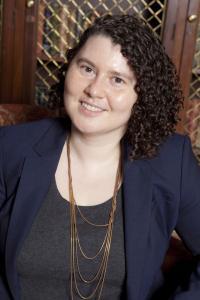Pronouns: she/her/hers
Professor Vera Keller, Norman Brown Faculty Fellow at the University of Oregon, is interested in the intersections of the history of science with the history of knowledge, ignorance, and political and economic thought. She is the author of Knowledge and the Public Interest, 1575–1725 (2015), which explores the co-production of experimental reason with the reason of state, The Interlopers: Early Stuart Projects and the Undisciplining of Knowledge (2023), which centers ambition, violence, and carelessness in colonial epistemic dynamics, and Curating the Enlightenment: Johann Daniel Major and the Experimental Century (2024), which investigates formations of academic research disciplines as safeguards of the liberal arts. Interlopers won the Gordan Prize from the Renaissance Society of America, the Gershoy Award from the American Historical Association, and was shortlisted for the Snow Prize from the North American Conference of British Studies. She has also co-edited several volumes and journal issues, most recently Knowledge and Power in the Journal for the History of Knowledge, with co-editors Ted McCormick and Kelly Whitmer. Her next project will offer a disability history of the categories of art and the human in the Renaissance. Her scholarship has been supported through many fellowships from the Mellon Foundation, the ACLS, and the Guggenheim, among others. Professor Keller is Membership Chair and a Director of the Board of the Renaissance Society of America and an Advisory Editor for the journal Isis. With Markus Friedrich and Christine von Oertzen, Keller co-edits a book series from De Gruyter, Cultures and Practices of Knowledge in History.
An interview with Dr. Miranda Melcher of New Books Network on Curating the Enlightenment is available here.
Back to Top

